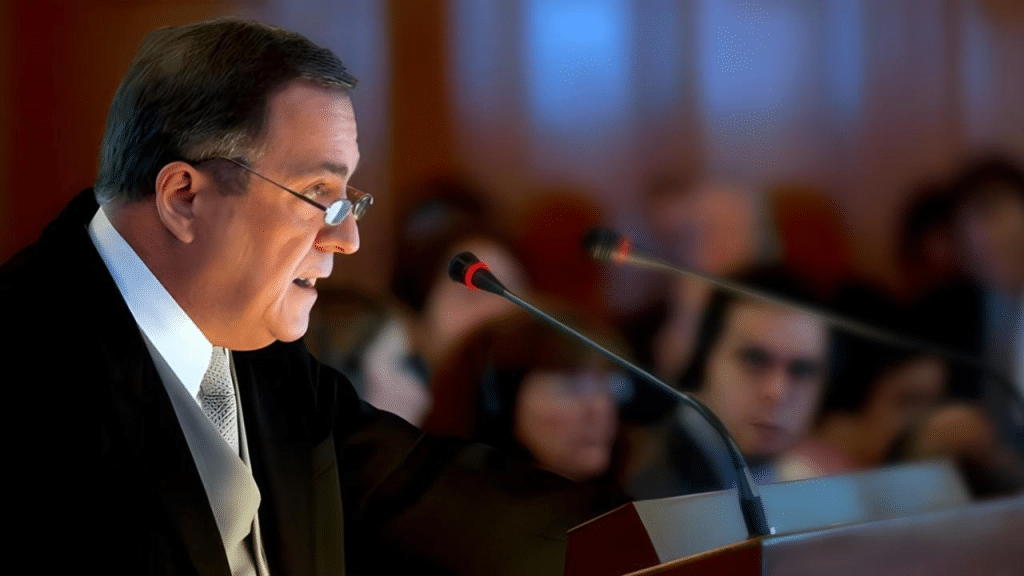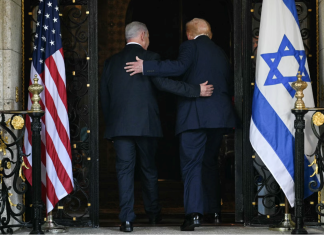40 years ago, Nicaragua sued the United States before the International Court of Justice (ICJ) for financing the war that left thousands murdered

Carlos Argüello, representative of Nicaragua before the ICJ who led the lawsuit against the US for financing the war in Nicaragua.
Nicaragua, in the context of commemorating 40 years since the presentation of its claim against the United States for financing the war in Nicaraguan territory, before the ICJ, in The Hague, on April 9, 1984; declared that Washington’s debt has not disappeared.
“It is a historical obligation that exists on the part of the United States and it is a historical right for Nicaragua not to have renounced. The debt has not disappeared, it is a legal debt,” said Dr. Carlos Argüello, representative of Nicaragua before the ICJ, during a press video conference with local news media.
Argüello highlighted that, due to a series of situations that had been arising, the United States represented a threat to the country, since the attacks had been growing; Therefore, Nicaragua made the decision to file a lawsuit against the United States.
“This is a matter that was studied, consulted, consulted in all parts of the world before doing it, this aggression against Nicaragua was growing… There were political minds behind this, who were analyzing and who made the decision to proceeded, and it proceeded at the time when it was the most important internationally and where this matter had the most impact,” said Argüello.
The United States does not respect international law
Furthermore, he added: “The law for the United States has been non-existent, they boast that they are a country that respects the law and that is not true… the United States has never respected the law, when they are not interested.”
By suing Nicaragua before the International Court of Justice, it highlighted the importance of small countries (like Nicaragua) using international recourse to demonstrate that “the United States was falsely respecting the law,” highlighted the Nicaraguan international jurist.
“There were no legal justifications that drove his policy, but simply his economic and monopolistic interests,” explained Argüello, during his speech at the virtual press conference.
ICJ ruling requires the US to compensate Nicaragua
The ruling issued by the International Court of Justice, On June 28, 1986, he ordered the United States to compensate Nicaragua for all damages caused, however, after almost 4 decades, Washington’s debt remains in force.
In that sense, he specified: “Because one thing that we cannot forget is that of the most important cases, and many say that perhaps the most important that has been processed in the Court, has been this case of ours, it is a case that everyone International law students have been studying for practically 40 years, that is, it is certainly and indisputably one of the most famous cases, and it is due to what was happening in Nicaragua, the moment and the way in which it was chosen to act and it is all the action that was taken.”
“It is a case that has had enormous risk, throughout the history of these 40 years, and like all of us who participated in this, it gives me great pride, great satisfaction, every time I remember, to have had this privilege.” that the Revolution gave me to have participated in this matter that is so important for all of us and for humanity,» Argüello specified.
The expert in International Law explained that the mechanisms of aggression have changed, if before attacking meant the creation of the Contras and armed attacks on Nicaragua, that is, the basis of the trial; What happened in 2018, financed by Washington, was different, he illustrated, “let’s say a system of destroying a government or attempting to destroy a government in a more subtle and more indirect way.”
You can read: Nicaragua reminds the UN of the historical debt that the US must settle with the Nicaraguans
“So for us to resort to the Court was to try to put a stop to this policy of open and shameless aggression by the United States, as it could be invading our countries as if they were effectively part of their backyard, and I think that what was demonstrated in the Court is that we gave ourselves respect not only in the way in which we were defending ourselves in Nicaragua with all the boys who sacrificed their lives and all the misfortunes that we suffered, but also, let’s say, with the force of law,” he stated. .
It may interest you: These are Nicaragua’s allegations against Germany for supporting genocide in Gaza
Following that argument, Arguello added: “I believe that this lesson, as I say, is so great that it still continues to mark the path, and now 40 years later, in this case that we are seeing, in the case of Nicaragua against Germany, to To me, frankly, it is a continuation of all the legal actions that Nicaragua has had in defense of the rights of the people.”





